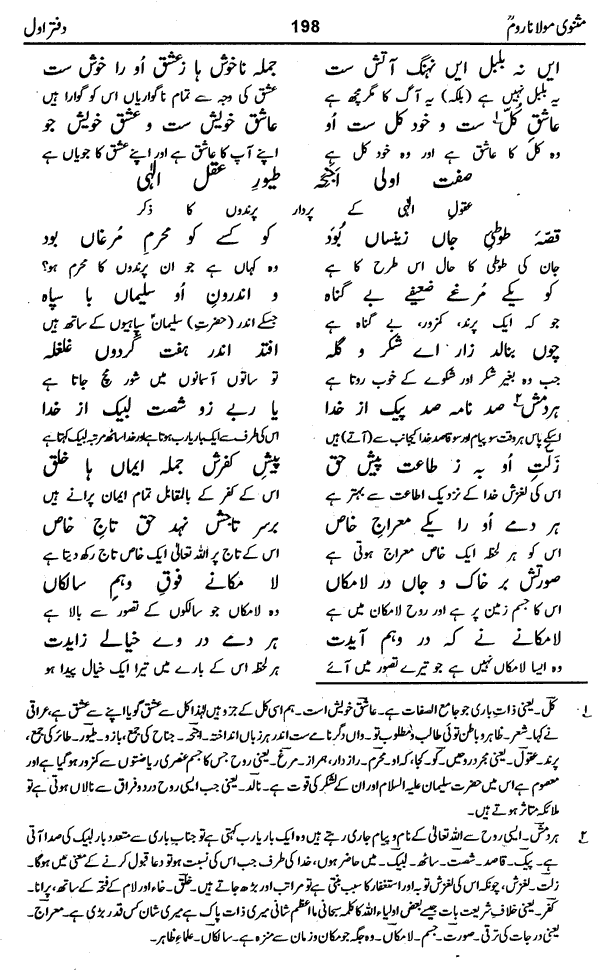The story of the merchant to whom the parrot gave a message for the parrots of India on the occasion of his going (thither) to trade.
There was a merchant, and he had a parrot imprisoned in a cage, a pretty parrot.
When the merchant made ready for travel and was about to depart to India,
Because of his generosity he said to each male slave and each handmaid, “What shall I bring (home) for you? Tell (me) quickly.”
1550. Each one asked him for some object of desire: that good man gave his promise to them all.
He said to the parrot, “What present would you like me to bring for you from the land of India?”
The parrot said, “When thou seest the parrots there, explain my plight (and say),
‘Such and such a parrot, who is longing for you, is in my prison by the destiny of Heaven.
She salutes you and asks for justice and desires (to learn) from you the means and way of being rightly guided.
1555. She says, “Is it meet that I in yearning (after you) should give up the ghost and die here in separation?
Is this right—(that) I (should be) in grievous bondage, while ye are now on green plants, now on trees?
The faith kept by friends, is it like this?—I in this prison and ye in the rose-garden.
O ye noble ones, call to mind this piteous bird, (and drink in memory of me) a morning-draught amongst the meadows!
Happy it is for a friend to be remembered by friends, in particular when that (beloved) is Laylá and this (lover) Majnún.
1560. O ye who consort with your charming and adored one, am I to be drinking cups filled with my own blood?
(O thou who art my beloved), quaff one cup of wine in memory of me, if thou desirest to do me justice,
Or (at least), when thou hast drunk, spill one draught on the earth in memory of this fallen one who sifts dust.
Oh, where, I wonder, is that covenant and oath? Where are the promises of that lip like candy?
If thy having forsaken thy slave is because of (his) ill service (to thee)—when thou doest ill to the ill-doer, then what is the difference (between master and slave)?
1565. Oh, the ill thou doest in wrath and quarrel is more delightful than music and the sound of the harp.
Oh, thy cruelty is better than felicity, and thy vengeance dearer than life.
This is thy fire: how (what) must be thy light! This is (thy) mourning, so how (what) indeed must be thy festival!
In respect of the sweetnesses which thy cruelty hath, and in respect of thy beauty, no one gets to the bottom of thee.
I complain, and (yet) I fear lest he believe me and from kindness make that cruelty less.
1570. I am exceedingly enamoured of his violence and his gentleness: ’tis marvelous (that) I (am) in love with both these
contraries.
By God, if (I escape) from this thorn (of sorrow) and enter the garden (of joy), because of this I shall begin to moan like the nightingale.
This is a wondrous nightingale that opens his mouth to eat thorns and roses together.
What nightingale is this? (Nay), ’tis a fiery monster: because of (his) love all unsweet things are sweetness to him.
He is a lover of the Universal, and he himself is the Universal: he is in love with himself and seeking his own love.”’”




No comments:
Post a Comment